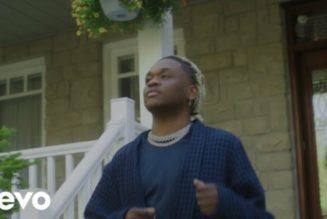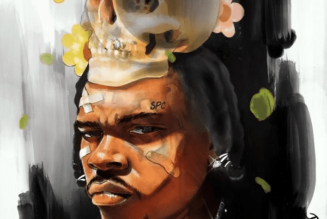
HITTING over 24 million views, Zuwena by Diamond Platnumz has enjoyed a massive airplay in terms of dance challenges, cover versions and tutorials on its guitar chords.
Zuwena has won a global appeal that went as far as Papua New Guinea besides drawing interest from countries with cultural connections with East and Central African music.
Among the most notable cover versions of Zuwena have been expertly done in Pokot language by Philip Jnr and a woman version by Lady Magda.
Also, worth mentioning is a thrilling stage performance of Vihiga Boys High School students from Kenya who performed Zuwena in a thrilling act.
Diamond’s Zuwena as per the comments of the music fans is a throwback to life in East, central and Southern Africa ten years after independence when traces of colonialism faded from the limelight.
“What a song, much love from Papua New Guinea,” said Jonnie Henry. Malawian who signed as Geckojt commented: “For exposure and recognition to international music I would beg if you would do 30 per cent and 70 percent local music like this one, you really fit in both.
I love the fact that you are singing like 15 years ago, on behalf of motherland Malawi salute you.”
“I love the fact that Diamond has decided to sanitise East African Music once again and return it to where it was before pornography took over,” said Emmah Wamae.
Adding, a Kenyan Tannitoh said: “This song is a hit in Nairobi, apparently I never knew Zambians and Zimbabweans understand Kiswahili. it is high time Kiswahili is made the official African language. Nairobi the capital of East and Central loving the vibes.” Imran Shaban joined saying: “Its is a brilliant storyline 100 per cent.
Zambian Kenneth Silweya added: “On behalf of Zambia we endorse this jam it’s classic and wisdom-filled A High Commisioner1954 came with this statement: “I will now respect Diamond ‘cause he’s got backbones. Nowadays no one can dare to advise girls or women about their behaviour and lifestyle. You are the man.” Someone who signed as Books_Onlinejoy said: “Poetry in music.
I love Swahili & local languages music. It’s a story in a song. Just beautiful.” A fan who signed as Swahili14 noted: “First East African song to stay at number one on trending for more than one month after its release.”
A fan named Wildlife Passion added: “Platinumz back to life, this is the kind of music we know of you… the music that gives history, the music that teaches, the music that triggers emotions and tears… So, touching….
The song is a true reflection of our modern African setup with family challenges, especially in such scenarios where the man dies and the woman remains the wealth custodian….
To all Zuwena Hyenas out there, change, please…Big up Simbaaaaaaaaaa….much love from Mombasa Nyali.” To the Tanzanians, Diamond’s Zuwena looks to have sampled the original Zuwena penned by Marijani Rajab and his Dar International Orchestra. Marijan Rajab’s Zuwena was a popular hit in the mid1970s and it enjoyed massive radio airplay for over a decade.
It regained popularity in the mid-1990s when Mr Paul was re-issued as a special song for Valentine’s Day and since then it has become a classic hit that is widely favoured by bands playing in bars and hotels across Tanzania and others.
Diamond’s Zuwena has a huge acceptance in Kenya, Zambia, Zimbabwe, Malawi, South Sudan, Rwanda and Uganda and as per the views of music fans and its English translation, it is a throwback to the real life of the urban centres across the East, Central and Southern Africa. Kenyans see the South of Nairobi as the location where Zuwena was filmed, but the most glaring feature of it is the Nairobi sound that carries the whole song.
For a Kenyan aged over 50 years, would credit Zuwena to Justus Kasoya or Oluoch Kanindo, the legendary producers of the mid-1970s mega hits. Zuwena is accepted by Zimbabweans, most likely because it is styled in a Zimbabwean guitar that adheres to the Mbira thumb piano.
In it they see Zimbabwean music legends like Paul Matavire, Thomas Mapfumo, or Biggie Tembo. But to the average East African, Zuwena revisits ‘Takeu or Utake’ the music genre jointly paraded by East African music stars of the early 2000s most notably the works of Jose Chameleon, Mr Nice, Amani, Nameless, and Professor Jay.
Zuwena, like many other hits already released by Bongo Flava artists, pays homage to Marijani Rajab, arguably the most sampled legendary artist. In Jazz, it is called influence but in the music of the present generation, sampling is the best term used to describe the influence of certain musicians in one’s music.
By taking allegiance with the rhumba idiom, Zuwena remains a Bongo Flava hit in its poetry as it has shrugged off the syncopated beat of the Rhythm and Blues whose pioneer was James Brown’s funky hits of the mid-1960s. As Marijani Rajab is the most sampled Tanzanian artist, James Brown is the most sampled artist of all time by Hip Hop artists. The funk legend has been sampled a staggering 8554 times.
From Kendrick Lamar to Kanye West; Boogie Down Productions to Childish Gambino; Madonna to The Stone Roses, everyone has found sampling gold in James Brown’s vast discography. Though artists like The Winstons and Lyn Collins follow in second and third, Brown remains a foundational reference for the sound of hip-hop.
The art of sampling is one of the cornerstones of music, and it’s a great way for modern listeners to discover music from years gone by. Chances are, even if you didn’t know what they were called, you’ve heard them in a song before. It’s hard to overstate James Brown’s contribution to music, both through his own works, as well as the artists that have sampled him ever since. He’s the most sampled artist in music and hiphop owes a lot to his music – especially his 1970 track, Funky Drummer.
The drum break has been used by the likes of Public Enemy, N.W.A, LL Cool J, Run-DMC and more, as well as Ed Sheeran and George Michael. The aforementioned artists were the inspirational influence of the early Bongo Flava from Mr Two, Professor Jay, Gang Plastaz, Inspector Haroun and many others who dominated the airplay in the early 2000s.
•Miguel Suleyman is a Tanzanian ethnomusicologist based in Dar es Salaam








